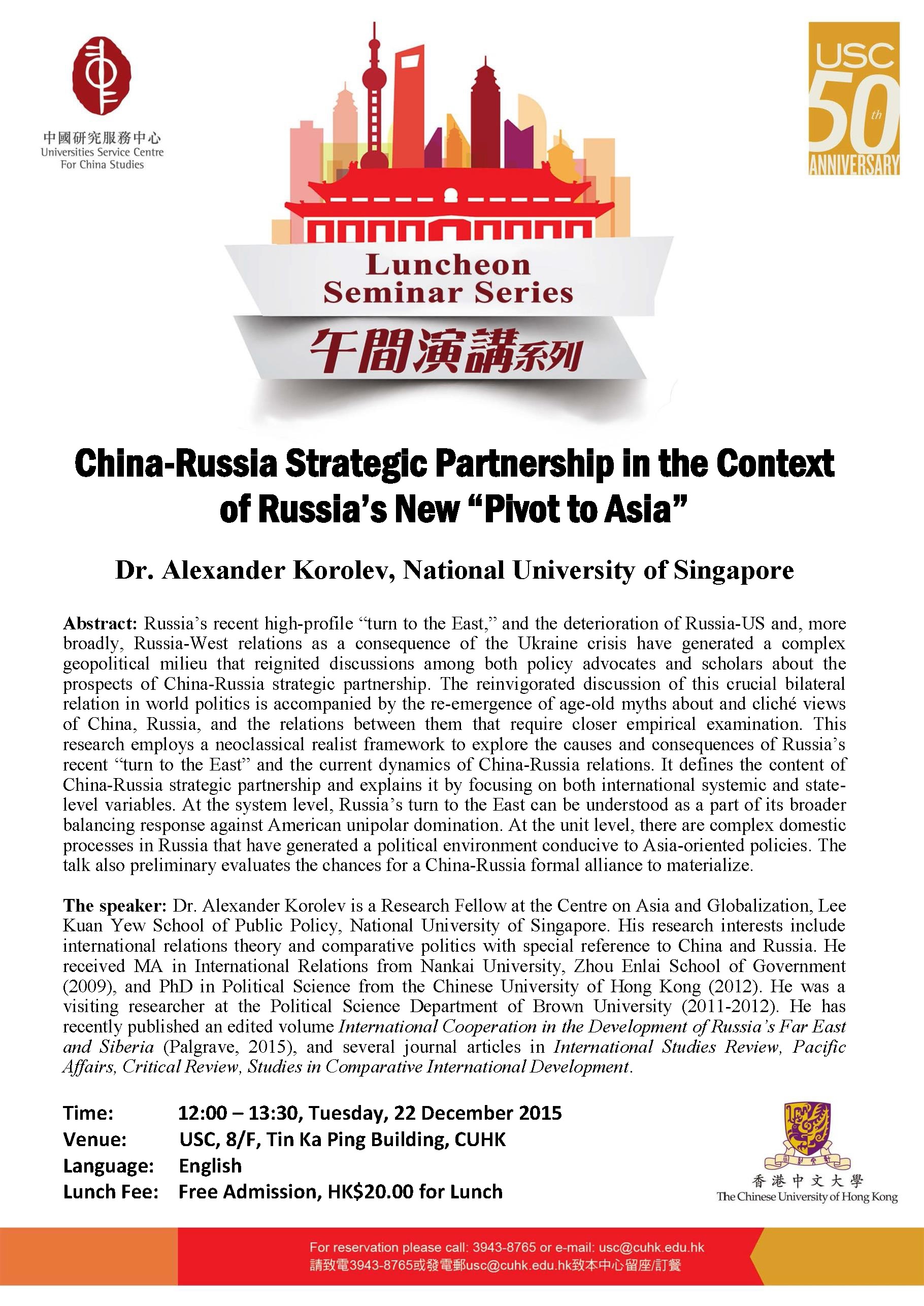活动
China-Russia Strategic Partnership in the Context of Russia’s New “Pivot to Asia”
2015年12月22日
12:00-13:30
香港中文大学田家炳楼八楼,中国研究服务中心
Dr. Alexander Korolev, National University of Singapore
Dr. Alexander Korolev is a Research Fellow at the Centre on Asia and Globalization, Lee Kuan Yew School of Public Policy, National University of Singapore. His research interests include international relations theory and comparative politics with special reference to China and Russia. He received MA in International Relations from Nankai University, Zhou Enlai School of Government (2009), and PhD in Political Science from the Chinese University of Hong Kong (2012). He was a visiting researcher at the Political Science Department of Brown University (2011-2012). He has recently published an edited volume International Cooperation in the Development of Russia’s Far East and Siberia (Palgrave, 2015), and several journal articles in International Studies Review, Pacific Affairs, Critical Review, Studies in Comparative International Development.
报名或订餐请于每个演讲日上午10:00之前,致电或电邮至中国研究服务中心,谢谢。
Tel.: (852) 3943-8763/8765
Email: event@usc.cuhk.edu.hk
語言:英文
費用:餐費港幣20元;不訂餐者免費
Russia’s recent high-profile “turn to the East,” and the deterioration of Russia-US and, more broadly, Russia-West relations as a consequence of the Ukraine crisis have generated a complex geopolitical milieu that reignited discussions among both policy advocates and scholars about the prospects of China-Russia strategic partnership. The reinvigorated discussion of this crucial bilateral relation in world politics is accompanied by the re-emergence of age-old myths about and cliché views of China, Russia, and the relations between them that require closer empirical examination. This research employs a neoclassical realist framework to explore the causes and consequences of Russia’s recent “turn to the East” and the current dynamics of China-Russia relations. It defines the content of China-Russia strategic partnership and explains it by focusing on both international systemic and state-level variables. At the system level, Russia’s turn to the East can be understood as a part of its broader balancing response against American unipolar domination. At the unit level, there are complex domestic processes in Russia that have generated a political environment conducive to Asia-oriented policies. The talk also preliminary evaluates the chances for a China-Russia formal alliance to materialize.
温馨提示:已订餐者不论有否出席活动,均须缴付餐费。谢谢您的理解和配合。


